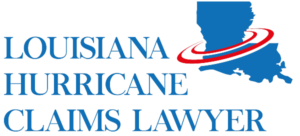Property insurance generally covers physical damage to covered property, subject to the exclusions and conditions of the policy. Some of the steps you need to take in presenting your Hurricane Ida property insurance claim include the following:

- Look for your insurance policy and related insurance records. Make sure you are familiar with any hurricane deductible that applies to your specific insurance policy. If you cannot find a copy of your policy, call your insurance company or insurance agent and request a copy;
- Give notice to your insurance agent and company or companies immediately, preferably in writing. The notice should include at least the location of the loss, the date and time of the loss, the policy holder’s name, phone, email and fax number, and a brief description of the loss;
- If possible, meet the claims adjuster at your property. Prior to your meeting with the adjuster, make a list of any damage you want to show the adjuster;
- Prepare a home inventory of damaged or destroyed items (preferably with photographs of the damage). If possible, include the make and model number of your possessions, purchase dates, and the purchase price. Your insurer may have an inventory form that can assist you in completing your inventory;
- Identify the structural damage to your home and other buildings on your premises;
- Get written bids from reliable, licensed contractors on the repair work;
- Collect photographs and/or videos as proof of hurricane damage;
- Prepare a Proof of Loss after checking with your insurance company for the information that will be required for submitting a Proof of Loss;
- Submit the Proof of Loss, photographs, reports, repair receipts, and receipts showing any evacuation costs to the insurance company;
- Assist in the insurance company’s investigation. You may be required to give the insurance company a sworn statement, show the property to the insurance company, take reasonable steps to protect the property, and cooperate with the insurance company’s investigation;
- Keep copies of all documents you submit to your insurance company;
- Read all checks and drafts on both sides before depositing or cashing them. Don’t accept any checks with words like “full,” “final,” or “settlement” on them;
- Do not sign any “release” or “waiver” forms without getting advice from an experienced attorney. You do not have to sign away any rights to get a fair insurance payment;
- Do not agree with the estimate your insurance company adjuster provides until you know how much money it will actually cost to repair your damaged property. Insurance adjusters usually use standardized software to adjust property damage claims. The price lists used with the software often fail to reflect current post-hurricane market conditions (shortages in labor and materials);
- Keep in mind that you may receive three or more checks from your homeowners’ insurer – one for structural damage, one for your lost/damaged contents, and one for any additional living expenses that were incurred as a result of the storm;
- Be aware of potential hidden mold damage. Consider having an expert inspect your property for mold as it can cause upper respiratory infections, allergies, and other adverse health effects. Many insurance policies have special provisions relating to mold damage, so read your policy carefully;
- Many storm victims have property damaged by both wind and flood. Most homeowners’ insurance policies exclude flood damage. Some homeowners insurance adjusters will try to attribute all of the damage at a flooded property to flooding; however, you can take steps to establish property damage from both wind and flood;
- The length of time it takes to process your claim, receive any insurance money you’re entitled to, and make repairs can vary depending on the extent of the damage, dangerous conditions caused by storm damage, and the availability of materials and workers.
- There may be different deadlines for filing a homeowner’s insurance claim and a flood insurance claim. Thus, it is important to consult with an attorney as soon as possible if you have not received enough insurance funds to repair your home.

